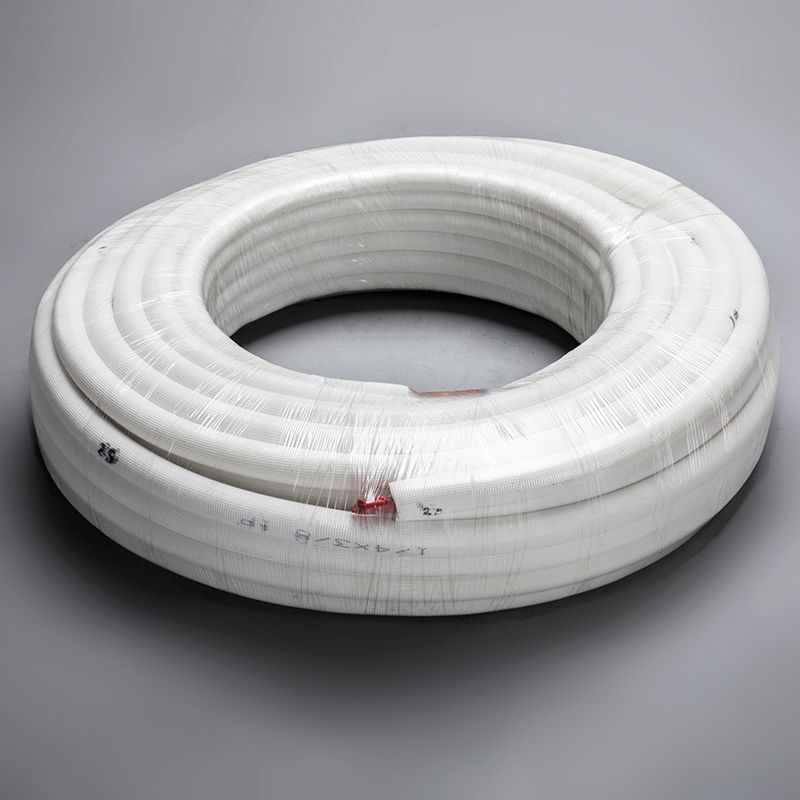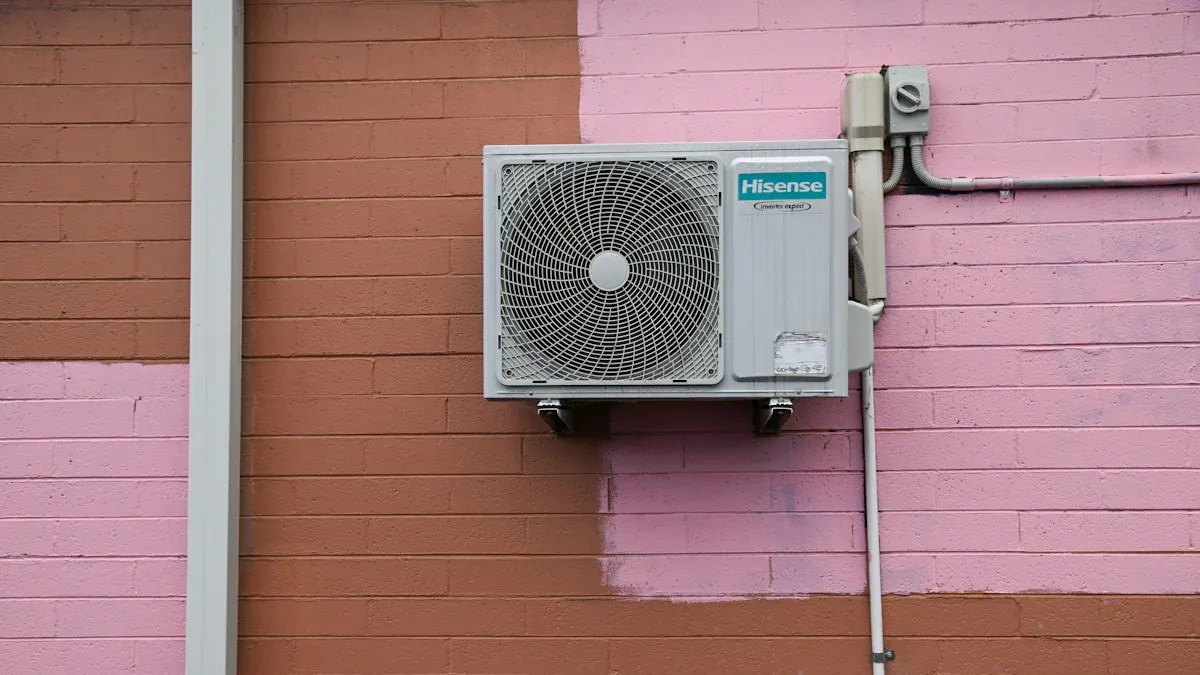How to Pick Aircon Pipe Kits That Last

Air conditioners need good aircon pipe kits for mechanical engineers in Singapore to work well. Strong pipe kits help the system last longer. In Singapore, picking the right aircon pipe kits is not just about price. You should check the material, strength, and local rules. For engineers, balancing cost and regulations gives good value and trust. Focusing on these aspects avoids repairs and expensive fixes.
Key Takeaways
Pick aircon pipe kits made from tough materials like copper. This helps them last longer and work better.
Make sure the pipe size and insulation fit your aircon. This keeps it efficient and stops damage.
Follow Singapore's rules to stay safe, avoid fines, and protect the environment.
Take care of aircon pipes often to avoid big repair costs. This also helps your system last longer.
Choose trusted sellers with good credentials and strong warranties. This gives you support and confidence.
Key Factors for Choosing Aircon Pipe Kits
Material Quality and Strength
Picking aircon pipe kits needs good material quality. Strong materials help pipes handle aircon system demands without breaking often. For example, studies show materials like HIPS and PMMA affect pipe performance. HIPS is cheaper but has different properties than ABS, which may not work as well. When strain increases, materials get stronger but less bendable. This means pipes may not break easily but could lose flexibility, shortening their life.
Always pick materials that balance strength and flexibility. Copper pipes are strong and resist rust, making them a top choice. Aluminum pipes are lighter and cheaper but not as durable. Choosing the right material improves how well your aircon works and lasts longer.
Matching Aircon System Needs
Not all aircon pipe kits are the same. Make sure the pipes fit your aircon system. Check pipe size, insulation thickness, and fittings. If these don’t match, cooling may drop, or energy use may rise.
For instance, if your system needs bigger pipes for more refrigerant, smaller pipes can cause problems. This can lower efficiency and risk system damage. Always check your aircon system’s guide before buying pipes. This helps avoid repairs and keeps your system working well.
Following Singapore Rules
In Singapore, following local rules is very important. Groups like the Building and Construction Authority (BCA) have strict aircon rules. These rules ensure safety, good performance, and eco-friendliness.
When buying aircon pipe kits, pick ones that meet these rules. Pipes should handle Singapore’s humid weather without wearing out. Insulation must also meet fire safety rules to avoid risks.
Breaking rules can lead to fines or replacing bad parts, costing more money. By choosing pipe kits that follow Singapore’s rules, you keep your aircon safe, efficient, and save money in the long run.
Types of Aircon Pipe Kits for Mechanical Engineers in Singapore

Copper vs. Aluminum Pipes
When picking aircon pipe kits, you often choose between copper and aluminum pipes. Both have their own strengths and weaknesses. Knowing these can help you decide what works best for your aircon system.
Copper pipes are strong and conduct heat and electricity well. They work great for aircon systems and need less upkeep. Copper is also safer, with fewer risks like overheating or fires. But, copper pipes cost more because they last longer and are high quality.
Aluminum pipes are cheaper and lighter, making them easier to install. They save money but need bigger conductors to work as well as copper. Aluminum also needs careful setup and regular checks to avoid problems like rust. Rust can cause overheating and reduce efficiency.
Here’s a simple comparison to guide your choice:
Material | Cost | Efficiency | Maintenance Needs | Safety Features |
|---|---|---|---|---|
Copper | Costs more due to strength and quality | Works better for heat and electricity | Needs less care | Safer, fewer fire risks |
Aluminum | Cheaper, good for tight budgets | Needs bigger conductors, saves money | Needs more care and checks | Can rust, causing overheating |
Think about these points to pick the best material for your aircon system and budget.
Insulation and Fittings
Insulation and fittings are key for aircon pipe performance. Good insulation keeps air at the right temperature. This reduces energy waste and makes your aircon system work better.
Sealing pipes and ducts is important to save energy. High-quality materials like foam or rubber keep refrigerant cool as it moves through pipes. This boosts efficiency and stops condensation, which can cause rust over time.
Fittings, like connectors and joints, also matter. Badly sealed fittings can leak air, lowering system efficiency. Use mastic or special tape to seal connections. This helps air reach its destination without wasting energy.
Key tips for insulation and fittings:
Seal ducts and insulate pipes to save energy.
Good insulation keeps air at the right temperature, improving efficiency.
Use mastic or tape to stop air leaks and save energy.
By focusing on these details, you can make your aircon system work better and spend less on repairs later.
Cost vs. Value in Aircon Pipe Kits
Balancing Budget and Longevity
When picking aircon pipe kits, think about cost and durability. Cheaper pipes might save money now but cost more later. They often need repairs or replacements sooner. Spending more on strong materials like copper pipes can save money over time. Copper lasts longer and doesn’t rust easily, so it needs fewer fixes.
Ask yourself how often you want to fix your aircon system. Stronger pipe kits lower the chance of leaks and problems. For example, copper pipes cost more upfront but stay strong for years. This makes them a smart choice for long-term use. Aluminum pipes are cheaper but need more care, which can cancel out the savings.
Choosing durable pipes over cheap ones helps your aircon work better. It also reduces the hassle and cost of frequent repairs.
Maintenance and Replacement Costs
Taking care of your aircon pipes affects how much they cost overall. Regular maintenance keeps your system running well and avoids big problems. But maintenance itself costs money.
Here’s a simple list of common tasks and their costs:
Maintenance Task | Average Cost |
|---|---|
Coil cleaning | $150–$300 |
Cleaning drain lines | $75–$200 |
Filter cleaning | $2–$50 |
Adding refrigerant | $200–$450 |
Energy check for the system | $100–$300 |
Skipping these tasks can make your aircon less efficient and more expensive to fix. For example, dirty coils or low refrigerant can overwork the system. This uses more energy and shortens its life.
To save money, take care of small problems early. Regular maintenance helps your aircon pipes last longer and keeps your system working well.
Tips for Choosing Reliable Aircon Suppliers
Checking Supplier Credentials
To pick a good aircon supplier, check their credentials first. A reliable supplier will have licenses, certifications, and insurance. These show they follow rules and provide quality service.
Here’s a simple list of key credentials to check:
Evidence Type | What It Means |
|---|---|
Licensing | Legal permission to work in certain areas, proving they follow rules. |
Certifications | Awards like NATE or RSES, showing technicians are well-trained and skilled. |
Insurance | Coverage for accidents or damages, showing they handle risks responsibly. |
Training Programs | Regular learning for workers to stay updated on new tools and methods. |
Suppliers with certifications like NATE or HVAC Excellence are better choices. These prove their workers meet high industry standards. Always ask to see these documents before deciding.
Warranty and After-Sales Support
Good suppliers offer strong warranties and helpful after-sales support. Warranties cover costs if something breaks after installation or service. Look for clear terms that include both parts and labor.
After-sales support is just as important. Suppliers with maintenance plans keep your aircon working well. Regular care stops big problems and helps your aircon last longer. Ask if they offer emergency help or flexible service times.
Picking a supplier with good warranties and support saves money and time. It also keeps your aircon running smoothly for many years.
Picking the right aircon pipe kits is very important. Good materials and insulation help your aircon work better. They improve air quality and save energy, making your system last longer. Strong pipes that follow Singapore rules also lower future costs.
Follow the tips in this guide to choose wisely. Trusted suppliers and fitting parts make your aircon more efficient. They also keep the air inside clean and fresh. Start now and pick solutions that give comfort and work well for years.
FAQ
What is the best material for aircon pipe kits?
Copper is the top choice for aircon pipe kits. It doesn’t rust, lasts longer, and handles pressure well. Aluminum costs less but isn’t as strong. Pick copper for better long-term performance.
How do I know if a pipe kit meets Singapore standards?
Look for certifications from groups like the Building and Construction Authority (BCA). Check labels or documents to ensure they meet safety and environmental rules.
How often should I maintain aircon pipes?
Check and clean aircon pipes every 6 to 12 months. Regular care stops leaks, boosts efficiency, and helps the system last longer. Follow the maker’s instructions for proper maintenance.
Can I mix copper and aluminum pipes in one system?
Don’t mix copper and aluminum pipes. Together, they can cause corrosion, which harms the pipes. Use one type of material to keep your system working well and lasting longer.
What should I look for in an aircon supplier?
Pick a supplier with licenses, certifications, and insurance. Look for warranties and good after-sales help. A trustworthy supplier also offers maintenance plans and emergency services to keep your aircon in top shape.
See Also
Top Reasons To Opt For Copper Pipes In AC Systems
Comparing Copper And Aluminum Tubes For Air Conditioning Efficiency
Simple Guide To Professionally Install Copper Tubes For AC
Comprehensive Guide For Purchasing Copper Pipe Coils Effectively


